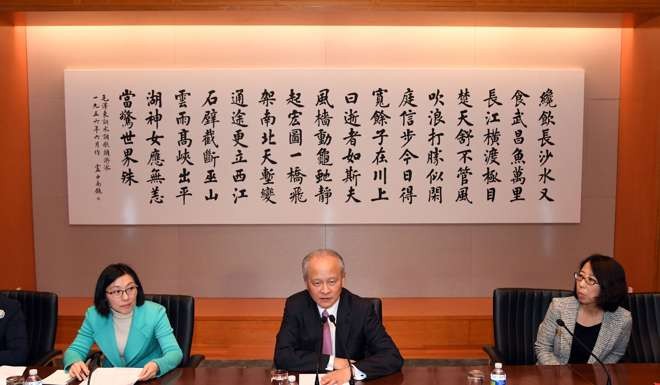
China doesn’t meet currency manipulator criteria, central banker says
Deputy PBOC chief Yi Gang says nation only meets one of three conditions for such status: maintaining a significant trade surplus with the US
China doesn’t meet the US criteria for a currency manipulator, according to deputy central bank governor Yi Gang, sending the bank’s first official message on the issue since the inauguration of US President Donald Trump.
“The threat of labelling China a currency manipulator is illogical. The People’s Bank of China already had thorough communications with the US Treasury Department,” Yi was quoted as saying by CPPCC Daily, a newspaper under China’s top political advisory body.
It is unclear when such bilateral communication was conducted or when Yi made the comments.
Trump has not yet acted on China trade or currency issues, but he has begun to fulfil key campaign promises, including pulling the United States out of the Trans-Pacific Partnership trade pact, in his first few days in office.
In an interview with The Wall Street Journal this month, Trump softened his tone a little by saying he would not name China a manipulator on his first day in office, but would “talk to them first”.

US legislation in 2015 set three criteria for labelling a nation as a currency manipulator: it had to have a significant trade surplus with the US and a material current account surplus, and engage in persistent one-sided intervention in the foreign exchange market, according to the US Treasury. Yi said China met only the first of these criteria.
The US Treasury Department reviews foreign exchange policies of major trading partners twice a year, and publishes corresponding reports in April and October. The timeline could leave a few months for the world’s top two economies to negotiate the issue.
China’s trade surplus with the US hit US$344 billion last year, and the gap is a key basis for Trump’s accusation and threat of slapping a 45 per cent punish tariff on Chinese goods.
While Trump insists that yuan is undervalued, China has actually tried to prevent a depreciation. After the US dollar strengthened on the back of the US Federal Reserve’s interest rate rise and expectations of fiscal expansion by Trump, China sought to prop up the yuan with foreign reserve spending and more recently introducing a series of capital control measures.
But the US dollar index has fallen recently, with the yuan’s mid-price against the greenback moving further from the key psychological rate of seven to one, hitting 6.8596 on Wednesday.

At a press conference in Washington on Tuesday, Chinese ambassador to the United States Cui Tiankai said China did not want to see a trade war as it would “hurt both sides and bring catastrophic impact to the global economy”.
“China-US cooperation is the only right choice,” he said.

